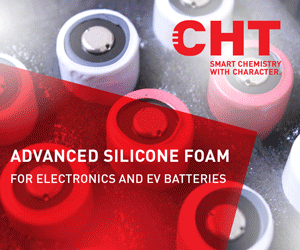[ad_1]
New research from Chalmers University of Technology shows why lithium metal batteries have short lifespans and how to extend them by creating the metal electrode directly in the battery cell.
Lithium-ion batteries with metal electrodes instead of graphite electrodes are gaining attention. However, metal electrodes are reactive, making it hard to produce a long-lasting cell. A research group at the Department of Physics at Chalmers has used 3D X-rays to monitor how the lithium in a lithium metal battery behaves in real time during operation. These experiments revealed that lithium forms uneven structures during charging and discharging, affecting its stability.
The results show a simple way to avoid the formation of a surface layer on the reactive electrodes, which damages batteries over time. If the metal electrode is created inside the battery, the metal never has the opportunity to react with impurities outside the battery, and develops a better and more stable surface layer.
“We create our electrode inside the battery through a process called electroplating. This allows us to avoid the reactive metal reacting with the environment, which is an advantage as we get a more predictable and stable electrode,” said Josef Rizell, doctoral student at the Chalmers Department of Physics.
[ad_2]





